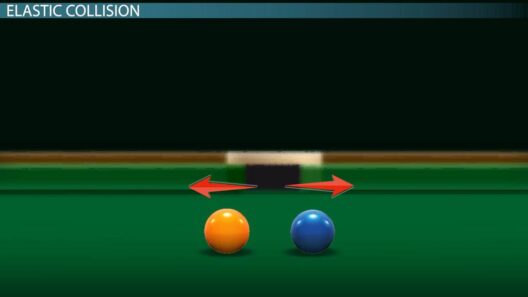When considering the principles of energy conservation, the General Theory of Relativity offers a complex but fascinating perspective that diverges from classical mechanics. This divergence stems from the fundamental shift in our understanding of spacetime, gravity, and how they interact with energy. At first blush, the question “Is energy conserved in the General Theory of Relativity?” may seem straightforward, yet upon deeper examination, the answer unfolds into layers of complexity, inviting both intrigue and deeper inquiry.
To comprehend energy conservation within the framework of general relativity, one must first acknowledge the classical notion of energy. In Newtonian physics, the conservation of energy holds a universal truth: the total energy within an isolated system remains constant, regardless of the transformations that energy undergoes. This foundational tenet is elegantly encapsulated in the first law of thermodynamics. However, in the realm of general relativity formulated by Albert Einstein, gravitational interactions prompt a reassessment of what constitutes not just energy but also conservation laws themselves.
Einstein’s revolutionized perspective on gravity characterizes it not as a force in the traditional sense, but as a curvature of spacetime around massive objects. This bending of spacetime dictates the trajectory of matter and light alike. In such a framework, energy does not exist independently or uniformly throughout the cosmos; rather, it is deeply embedded within the fabric of spacetime itself. Hence, the conservation of energy must be re-evaluated in contexts where spacetime curvature is significant.
A pivotal observation to consider is that energy conservation remains a local principle even in the general relativistic paradigm. Within small enough regions of spacetime, where gravitational effects are negligible, the local conservation of energy equation is analogous to that of classical physics. This locality, however, becomes intricate when we scale up to cosmic phenomena where massive celestial bodies exert substantial gravitational influences. Here, energy may not appear conserved in a conventional sense.
One such illustrative example arises when considering a system of objects in freefall, like satellites orbiting Earth. Although energy is conserved in local frames, an observer stationed far from the gravitational field would note that energy seems to “leak” into the gravitational field as objects fall. This phenomenon is notably complicated by the equivalence principle, which posits that being in freefall is locally indistinguishable from being in an inertial frame without gravity. The concept of energy becomes nebulous as gravitational potential continuously varies with altitude.
Moreover, the emergence of black holes underscores the profound implications for energy conservation within the theory. Black holes, defined by their event horizons, encapsulate energy and matter in such a way that they challenge traditional views. The intense gravitational pull can lead to scenarios where information, and thus energy, appears to be irretrievably lost to an external observer. This notion of energy disappearing into a black hole stirs philosophical debates about the fate of energy and information in the universe.
Another key area where the conversation about energy conservation thrives is that of cosmological phenomena. The expansion of the universe, characterized by the cosmological constant, adds another layer of complexity to the energy conservation enigma. As the universe expands, the energy density associated with the constant energy field does not diminish; instead, it persists, leading to a dynamic form of energy that seems to contradict traditional conservation laws.
Furthermore, the introduction of gravitational waves, ripples in spacetime identified by LIGO, opens an additional chapter in the discussion. These waves are manifestations of accelerating masses, carrying energy across vast distances. Their detection exemplifies the nuanced way in which energy propagates through the structure of spacetime, challenging the fixed notions of where and how energy exists. This phenomenon illustrates that energy, mirrored within gravitational waves, embodies a more nuanced narrative than rigid principles allow.
Despite the many challenges presented by these complexities, certain approaches have been proposed that might reconcile energy conservation within general relativity. The concept of “pseudo-energy” emerges, introducing variables that can describe energy flow in non-inertial frames. These formulations grapple with the reconciliation of conventional energy conservation laws with the fluidity of spacetime. However, these approaches remain under scrutiny and exploration in theoretical physics.
In summation, the question of whether energy is conserved in the General Theory of Relativity is not simply a dichotomy of “yes or no.” It invites exploration of the nuances within energy’s relationship with gravity, spacetime, and the universe at large. The tension between local conservation laws and the larger cosmic implications fosters a deeper understanding of the cosmos while highlighting the need for continued inquiry into the fundamental nature of energy itself. Such considerations echo not only through the corridors of theoretical physics but resonate with our ongoing quest to comprehend the universe comprehensively.
As we contemplate the vastness of the cosmos and our role within it, the inquiry into energy conservation reminds us that the universe operates on principles that boggle the mind yet inspire curiosity. The intricate tapestry of spacetime and its interactions promises a) endless avenues of thought and b) uncharted territories of exploration in the pursuit of knowledge. Whether through the lens of physics or the framework of philosophy, the conversation surrounding energy conservation within the General Theory of Relativity remains a timeless topic that beckons further examination.








